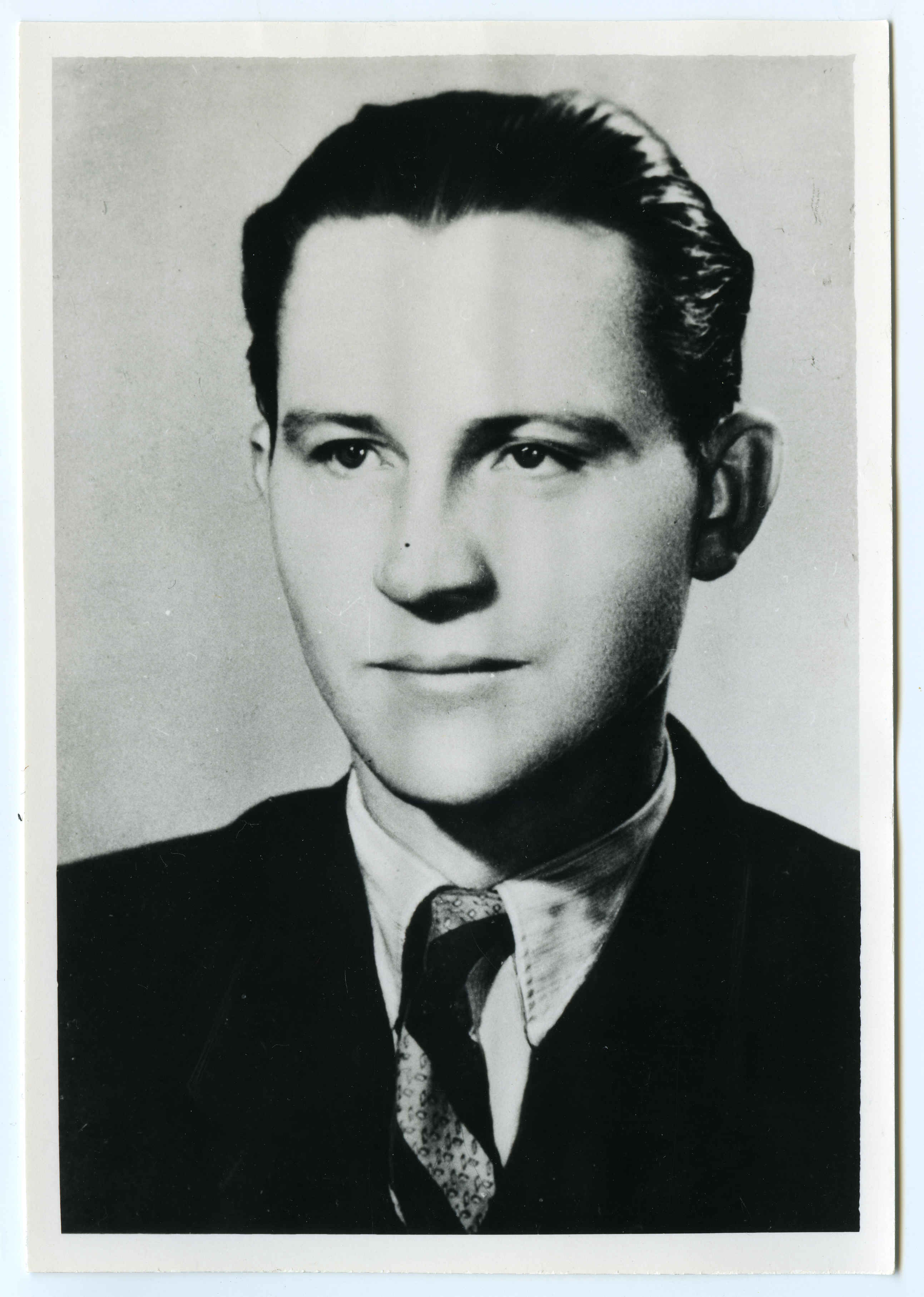
Paul Haavaoks
Paul Haavaoks (12. VI 1924 – 30. IX 1983) was an Estonian poet.
He was born in Järvesuu parish near Värska in Setumaa, south-east Estonia. From 1932 to 1938 he attended Värska primary school, from 1946 to 1947 the Valga school for rural youth; he gained his secondary education in 1953 at the night secondary school for working youth in Põlva. He worked at several jobs and was active in Komsomol. Among other places he worked at the Leevaku, Vastse-Nursi and Saesaare power station construction sites, on the Saatse parish executive committee, and in the editorial office of the newspaper Koit in Põlva. From 1955 Haavaoks was a professional writer, living mostly at Räpina, and in summer also at his home farm in Värska.
Haavaoks’ first verses appeared in 1937, but his consistent activity as a poet began later. Haavaoks was inspired in his choice of a literary career by a meeting with Juhan Smuul. Haavaoks’ poetic language is consistently simple and assured in form; this has favoured the use of his poems as song lyrics. A large part of Haavaoks’ work has always been a poeticization of nature, rural life and simple work; the association of his identity with Setumaa has always been important to him – Haavaoks has been the best-known Setu poet over the years. One of the writers who has influenced Haavaoks is the Russian Sergey Esenin, who has been called ‘the last village bard’. The attitude of the village bard is also true of Haavaoks. In Estonian literature there is a particular match between Haavaoks’ work and that of Juhan Liiv and Juhan Smuul.
The earlier phase of Haavaoks’ career consists of the collections published in the fifties and sixties. Compared with the later ones, there are more Soviet themes and poetic styles, but somewhat more description and classical form. A lyricism prevails, though Haavaoks also makes some attempts more substantial long poems, such as the title poem of his third collection, Metsad kohisevad (‘The Forests Are Rustling’, 1962). Often Haavaoks describes the landscapes of his home district – forests, heaths, the shores of Lake Peipsi, the Setu villages – and these remain typical of him later, too.
The way into Haavaoks’ later poetry goes through Sipelgarada (‘Ants’ Trail’, 1970), where there are three striking changes – alongside his poetry in Estonian he writes poems in Setu dialect; secondly, the Setu identity merges more clearly than before with the national identity; thirdly, the signs of Soviet politics disappear. In his last collections the existential awareness of life deepens and the imagery becomes multi-layered. The subject-matter does not change markedly, there is some depiction of the urban landscape in his later work, (as in the collection Kanajala linnajagu, ‘Kanajala District’, 1977) but it generally means a complicated relationship between country and town.
In addition to poetry for adults, Haavaoks also published verse for children. He also published a book of memoirs, Eelkarastumine (‘Prior Tempering’), based on his life and work at Leevaku.
M. V. (Translated by C. M.)
Books in Estonian
Poetry
Peipsi rannalt: luuletusi 1949–1957. Tallinn: Eesti Riiklik Kirjastus, 1957, 92 lk.
Rändajad maanteel. Tallinn: Eesti Riiklik Kirjastus, 1960, 104 lk.
Metsad kohisevad. Tallinn: Eesti Riiklik Kirjastus, 1962, 104 lk.
Laul suurest salvest: luuletusi. Tallinn: Eesti Raamat, 1965, 120 lk.
Sipelgarada. Tallinn: Eesti Raamat, 1970, 100 lk.
Talvised mesipuud: valik luuletusi 1949–1969. Tallinn: Eesti Raamat, 1971, 276 lk.
Palumaa pedajad. Tallinn: Eesti Raamat, 1974, 96 lk.
Kanajala linnajagu. Tallinn: Eesti Raamat, 1977, 112 lk.
On küla kuskil veel. Tallinn: Eesti Raamat, 1980, 88 lk.
Rannahääled. Tallinn: Eesti Raamat, 1981, 72 lk.
Suvised nurmed: valik luuletusi, 1962–1982. Tallinn: Eesti Raamat, 1984, 168 lk.
Paul Haavaoks. Koostanud Ülo Tonts. Tallinn: Eesti Raamat, 1988, 160 lk. [Sari ‘Väike
luuleraamat’.]
Palumaad ja rannahääled: valik luulet. Koostanud Ilme Hoidmets ja Nele Reimann. Värska: Seto Instituut, 2020, 336 lk.
Children’s books
Rannapoisid. Tallinn: Eesti Riiklik Kirjastus, 1960, 40 lk.
Lehesall ja lumerätt. Tallinn: Eesti Riiklik Kirjastus, 1962, 32 lk.
Nipitiri. Tallinn: Eesti Raamat, 1974, 56 lk.
Valge pilliroog. Tallinn: Eesti Raamat, 1974, 112 lk.
Memoirs
Eelkarastumine. Tallinn: Eesti Raamat, 1974, 96 lk.



